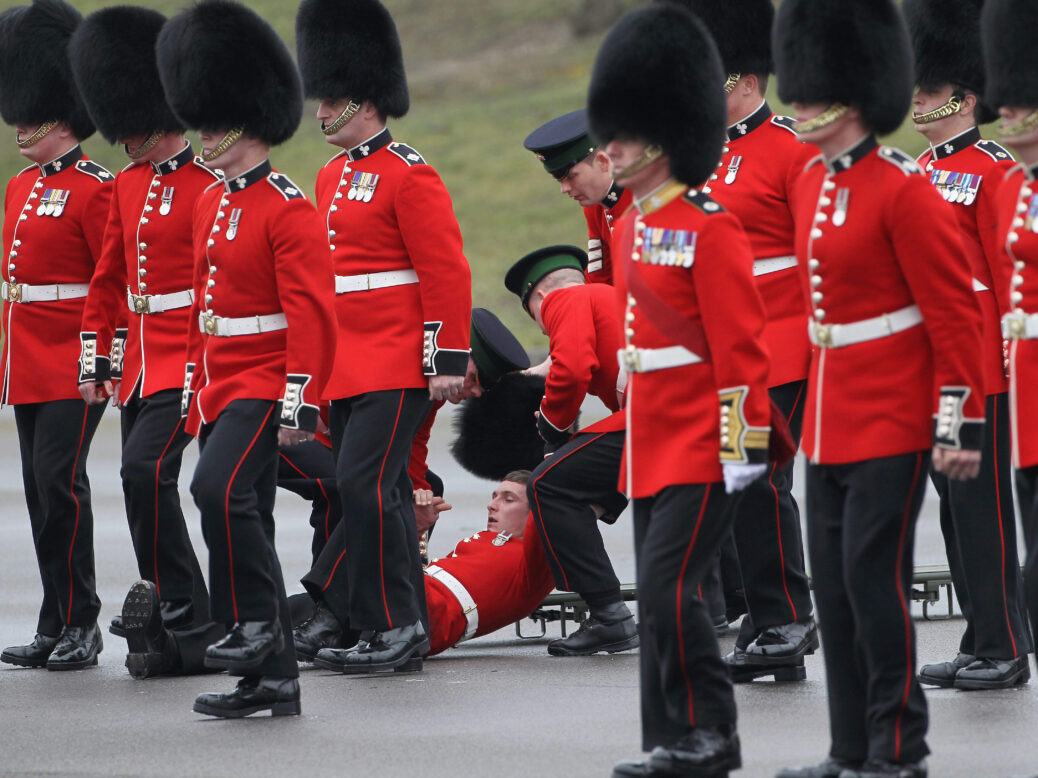
It was one of those glorious July days. With the sun on the canvas and the combined respiration of several hundred proud parents and grandparents, the atmosphere inside the speech-day marquee was decidedly stuffy. Faces were fanned with programmes; applauding palms were sweaty. As the procession of students collecting certificates and trophies came to an end, an elderly man in the front row slumped against the woman next to him and then keeled over on to the grass.
It took a short time to extricate myself from where I was sitting. Concerned people were huddled around the man when I got to him. For a moment, I thought there might be a full-blown resuscitation drama – he was strikingly grey and unconscious – but a swift check established that he was breathing and had a pulse.
I sent someone to call for an ambulance but within a couple of minutes the elderly man had fully come round. I took a brief history and he denied he had any symptoms suggesting that anything was seriously awry. His colour was pinking up nicely. He started to profess embarrassment at creating such a fuss. It looked like nothing more than a simple faint.
This sort of situation makes you realise how naked you are as a doctor without equipment and technology. I had nothing with which to conduct an examination or tests and the setting was far from conducive. Speech day had now finished; people were beginning to traipse out of the marquee, casting curious glances at our tableau – old man on the ground, doctor crouched in attendance – as they passed. My two children, desperate to get home and start their summer holidays, were making can-we-go-now faces at me. My patient sat up, protesting that he now felt fine. I was on the point of helping him to his feet and wishing him well when I noticed the wetness darkening his trousers.
People are occasionally incontinent when they faint but it is rare. I felt uneasy. I thought back to my first impression of him, how he had looked dead. I told him I thought he should lie back down and wait for the ambulance.
We had a minor battle of wills. His granddaughter was the head girl, he said, and this had been a big day for her; he wanted to rejoin her party. And he had the English distaste for making a scene. He almost persuaded me. When someone told me the ambulance could not negotiate the embankment down to the sports field and asked me if I really thought my patient needed it, my resolve almost faltered again – but by then I’d pushed him for more information and had elicited the grudging admission that, now I came to mention it, there had been a sudden pain in his stomach and his back before he passed out.
My suspicion was confirmed when I phoned the hospital the following day. He was in intensive care, having survived emergency surgery for a ruptured aortic aneurysm. The aorta is the body’s main artery, running from the heart down through the chest and abdomen. Its typical diameter is two centimetres. Genetic factors, high blood pressure and smoking can all weaken the aortic wall, which then distends, forming a dilatation or aneurysm. Eventually, stretched thin enough, the artery wall ruptures.
Death is rapid with a catastrophic breach but with a small minority of patients – as in this case – the initial “leak” is sealed temporarily by a clot. There follows a period during which emergency surgery to graft in an artificial artery may save life, although only half of the patients who make it to hospital survive. Aortic aneurysms predominantly affect men and become increasingly common with age. If they are diagnosed before they leak or burst, surgical repair is much more feasible, with death rates in the order of 3 per cent. Aneurysms are readily detected by a simple and inexpensive ultrasound scan and there is good data linking diameter with risk of rupture. For several years, enterprising companies have been offering scans on a private basis and in 2013 the NHS finished rolling out its own screening programme nationwide. All men are invited for a single scan when they are 65.
With a normal-calibre aorta, the risk is negligible. Aneurysms of greater than 5.5 centimetres in diameter have a high chance of rupture, so surgical repair is usually offered. Those in the “grey zone” are more difficult; the risks of surgery at a diameter of four centimetres are about equal to those of leaving things alone. Repeat surveillance scans are a way of checking for progression.
I kept in touch with the hospital over the next 11 days, at which point sadly my patient died from kidney failure caused by the blood loss he’d sustained. He had, at least, lived long enough to hear his granddaughter deliver her end-of-year speech as head girl, which must have made him proud. I learned later that she was going on to university to study medicine. I found this particularly poignant. By the time she qualifies as a doctor, the NHS screening programme should have helped reduce mortality from ruptured aortic aneurysms but it came too late for her family. The memory of that school speech day and the loss of her grandfather will no doubt stay with her throughout her career.





